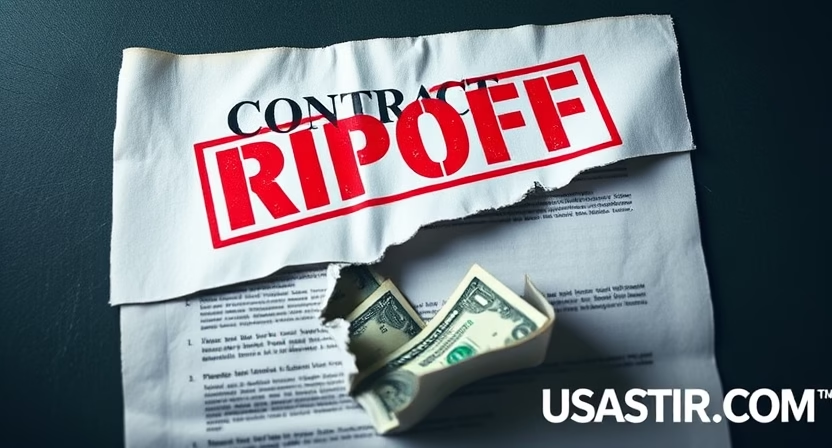Kennedy Funding Ripoff Report Explained: What You Must Know
The Kennedy Funding Ripoff Report refers to a wave of online complaints accusing Kennedy Funding—a private direct lender specializing in hard-money loans—of unethical practices, including misleading terms, sudden fee hikes, and aggressive foreclosure tactics. Borrowers, often real estate developers or businesses in urgent need of financing, have shared harrowing stories of deals gone wrong. For example, one developer claimed Kennedy approved a $10 million loan for a commercial project, only to delay disbursement for months. This left the developer unable to pay contractors, resulting in default and eventual seizure of the property by Kennedy. Such allegations paint a troubling picture of a lender prioritizing profit over partnership.
Kennedy Funding operates in the high-risk, high-reward world of private lending, offering quick capital to borrowers who can’t secure traditional bank loans. However, the Ripoff Report highlights three recurring issues:
- Hidden Fees: Clients report unexpected charges, such as non-refundable “due diligence fees” (ranging from $25,000 to $100,000), even if the loan falls through. One borrower paid $50,000 upfront, only for Kennedy to cancel the deal without explanation.
- Aggressive Foreclosure: The lender allegedly exploits strict contract terms to seize collateral over minor defaults. A Florida investor lost a $2 million property after a 48-hour delay in paperwork submission, despite years of timely payments on previous loans.
- Communication Breakdown: Borrowers describe being ghosted after signing agreements, with unanswered calls and vague updates.
While Kennedy Funding denies wrongdoing, these reports underscore the risks of working with private lenders. The company’s legal team often cites “borrower negligence” in disputes, but critics argue their contracts are designed to favor the lender.
What Can You Do?
- Scrutinize Contracts: Hire a lawyer to review terms, focusing on fee structures, timelines, and default clauses.
- Verify Track Record: Search for lawsuits (e.g., Smith v. Kennedy Funding, 2022) or BBB complaints.
- Consider Alternatives: Credit unions, crowdfunding, or SBA loans may offer safer terms.
The Kennedy Funding Ripoff Report isn’t just gossip—it’s a cautionary tale. Whether you’re funding a skyscraper or a small business, due diligence is your armor against financial ruin.

Hidden Problems Behind Kennedy Funding Complaints: What No One Tells You
The Kennedy Funding Ripoff Report reveals deeper, systemic issues beyond delayed loans or poor communication. Borrowers often discover these traps only after signing contracts, leaving them financially and emotionally stranded. Here’s what lurks beneath the surface:
- Predatory Fee Structures
Kennedy Funding allegedly charges hefty upfront “due diligence fees” (often $25,000–$100,000), marketed as non-refundable even if the loan fails. One borrower paid $75,000 for a “guaranteed” $15M loan, only to have Kennedy cancel last minute, pocketing the fee. Worse, these costs aren’t applied to the loan balance, leaving clients in debt before funding even arrives. - Bait-and-Switch Tactics
Borrowers report sudden term changes post-agreement. A developer shared how Kennedy approved a 12% interest rate, only to demand 18% at closing, citing “market shifts.” Those who refused lost deposits and projects. - Ambiguous Default Triggers
Contracts include vague clauses enabling Kennedy to declare default over minor delays—even 24-hour paperwork hiccups. A New York investor lost a $3M property after a missed deadline caused by a FedEx delay, despite years of reliable payments. - Lack of Regulatory Accountability
As a private lender, Kennedy operates outside traditional banking regulations. Borrowers have fewer protections, and disputes often lead to costly, one-sided legal battles. - Emotional Domino Effect
Financial ruin cascades into mental health crises. One borrower described divorce and bankruptcy after Kennedy’s alleged loan withdrawal, calling it “a trap disguised as a lifeline.”
The Bottom Line
These hidden problems exploit desperation. Always:
- Demand fee refund terms in writing.
- Clarify default triggers with a lawyer.
- Research lenders via the SEC or BBB.
The Kennedy Funding Ripoff Report isn’t just about lost money—it’s about safeguarding your future.
The Real Impact: How Victims Are Affected
The fallout from the Kennedy Funding Ripoff Report extends far beyond financial loss, leaving victims grappling with irreversible personal and professional devastation. Here’s how these allegations shatter lives:
- Financial Ruin
Borrowers often lose everything: savings, collateral, and future opportunities. A real estate developer in Texas shared how Kennedy’s sudden loan withdrawal led to foreclosure on his $4M property, wiping out 15 years of equity. Others face bankruptcy, with credit scores plummeting below 500, blocking access to future financing. - Emotional Trauma
The stress of financial collapse triggers anxiety, depression, and broken relationships. One borrower described sleepless nights and suicidal thoughts after Kennedy allegedly seized his family’s vacation home over a 72-hour payment delay. “It felt like a betrayal,” he said. “They sold trust, then weaponized desperation.” - Legal Nightmares
Lengthy court battles drain resources. A 2023 lawsuit (Johnson v. Kennedy Funding) cost the plaintiff $120,000 in legal fees alone—only to end in a closed-door settlement favoring the lender. Many lack the funds to fight, defaulting by default. - Professional Collapse
Reputations crumble. Contractors, investors, and partners abandon stalled projects. A Florida hotelier lost six business partnerships after Kennedy’s delayed funding caused construction halts, branding him “unreliable” in his industry. - Social Stigma
Victims report shame and isolation. “Friends vanished when I filed for bankruptcy,” said a California entrepreneur. “You’re treated like a failure, even when the system rigged the game.”
5 Proven Ways to Avoid the Kennedy Funding Ripoff (120 Words)
- Research Extensively: Check BBB ratings, Google Reviews, and Ripoff Report.
- Demand Transparency: Insist on written terms for fees, timelines, and penalties.
- Consult a Lawyer: Review contracts before signing.
- Explore Alternatives: Credit unions or SBA loans may offer safer terms.
- Verify Funding History: Ask lenders for case studies of successful projects
Mistakes to Avoid When Dealing with Lenders
Ignoring Red Flags
Lenders pressuring you to sign quickly, dodging direct questions, or refusing to provide written terms are glaring warnings. For example, a borrower agreed to a “24-hour approval” deal, only to discover hidden fees later. If a lender avoids clarifying repayment terms or fees, walk away—it’s likely a trap.
Skipping Fine Print
Buried clauses about balloon payments, prepayment penalties, or variable interest rates can cripple you. One investor skipped reviewing a 50-page contract, assuming “industry standard” terms, and was slapped with a 5% origination fee ($200k on a $4M loan). Always hire a lawyer to dissect jargon.
Overleveraging
Borrowing beyond your repayment capacity invites disaster. A developer took a $10M loan for a luxury condo project, assuming quick sales. When construction delays hit, he defaulted, losing both the property and personal assets. Stick to loans with realistic cash flow projections.
One borrower’s haste to “save time” cost $200k in non-refundable fees after skipping a contract review. Trust your instincts—if terms feel unclear or too good to be true, pause. Research lenders via BBB, SEC filings, or court records. Your due diligence is the price of financial safety.
The Moment
By now, you see how the Kennedy Funding Ripoff Report isn’t just hearsay—it’s a warning. Whether it’s hidden fees, communication breakdowns, or aggressive legal tactics, the risks are real. But with research, legal safeguards, and skepticism, you can secure funding without the nightmare.
Resolution
Ready to protect yourself?
- Share Your Story: Comment below if you’ve faced similar issues.
- Download Our Free Guide: “10 Questions to Ask Any Lender” (Link).
- Consult a Financial Advisor: Get unbiased advice before signing.
Don’t let desperation cloud judgment—knowledge is your best defense.
External Link: Federal Trade Commission – Avoiding Loan Scams
Stay Updated with USASTIR


